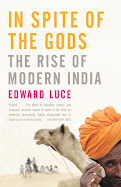Toa Kitu Kidogo is a Swahili phrase for "give me a little something" that is used to refer to under-the-table transactions and generally refer to corruption in politics/business.
The Senegalese government is accused of taking part in TKK with an IMF official, in September. IMF representative Alex Segura ended his 3 year term in Senegal, and boarded a flight to Barcelona with a $250,000 "gift" from Senegal's Prime Minister Souleymane Ndene Ndiaye. Segura claimed he did not realize it was a cash gift until airport x-ray machines detected it. The prime minister until recently had vehemently denied the existence of any such gift, while the IMF representative claims he could not return the gift once he discovered it as cash, because he did not want to miss his flight.
Apparently, the negligible cost of postponing a flight for a few hours is too much to pay compared to the benefit of accepeting an illegal gift. The gift was illegal, simply based on its nature, but how can one ignore the fact that it came from the seemingly corrupt prime minister of a country enrolled in the IMF's HIPC program. HIPC is the Highly Indebted Poor Countries Initiative founded by the IMF in 1996 to eradicate unsustainable debt in poor countries and supposedly lift these countries out of poverty. The IMF pats itself on the back at imf.org saying"
DEBT RELIEF FREES UP RESOURCES FOR SOCIAL SPENDING
Debt relief is one part of a much larger effort, which also includes aid flows, to address the development needs of low-income countries and make sure that debt sustainability is maintained over time. For debt reduction to have a tangible impact on poverty, the additional money needs to be spent on programs that benefit the poor.
Boosting social spending. Before the HIPC Initiative, eligible countries were, on average, spending slightly more on debt service than on health and education combined. Now, they have increased markedly their expenditures on health, education, and other social services. On average, such spending is about six times the amount of debt-service payments.
Reducing debt service. For the 35 countries receiving debt relief, debt service paid, on average, has declined by about 2½ percent of GDP between 1999 and 2007. Their debt burden is expected to be reduced by about 90 percent after the full delivery of debt relief (including under the MDRI).
Improving public debt management. Debt relief has markedly improved the debt position of post-completion point countries, bringing their debt indicators down below those of other HIPCs or non-HIPCs. However, many remain vulnerable to shocks, particularly those affecting exports as seen during the current global economic crisis. To reduce their debt vulnerabilities decisively, countries need to pursue cautious borrowing policies and strengthen their public debt management.
Maybe the training for IMF reps assumed everyone knew the meaning of 'social spending" for a country. The the CIA World fact book estimates that in 2009, 51% of Senegal's population lives in poverty. The $250,000 farewell gift to Alex Segura is the equivalent of approximately 111 million Africaine francs(Senegalese currency) as of 11/02/2009. This is corrupt misuse of taxpayer funds and outright disregard for human life considering the state of Senegal's economy.
1st image
1st image









No comments:
Post a Comment